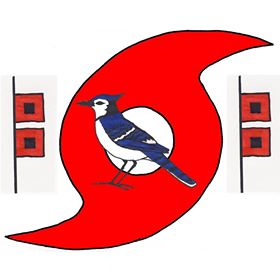Tropical Storm Juliette weakened as it moved west of Baja California on Wednesday. At 5:00 p.m. EDT on Wednesday the center of Tropical Storm Juliette was located at latitude 23.9°N and longitude 120.2°W which put the center about 655 miles (1055 km) west of the southern tip of Baja California. Juliette was moving toward the north-northwest at 14 m.p.h. (22 km/h). The maximum sustained wind speed was 45 m.p.h. (75 km/h) and there were wind gusts to 60 m.p.h. (95 km/h). The minimum surface pressure was 1006 mb.
A combination of cooler water and stronger vertical wind shear caused Tropical Storm Juliette to weaken on Wednesday. Thunderstorms were still occurring in bands in the northeastern part of Juliette’s circulation. Bands in the other parts of Tropical Storm Juliette consisted primarily of showers and lower clouds.
The circulation around Tropical Storm Juliette was small. Winds to tropical storm force extended out 45 miles (75 km) from the center of Juliette’s circulation.
Tropical Storm Juliette will move through an environment that will be unfavorable for intensification during the next 24 hours. Juliette will move over water where the Sea Surface Temperatures are near 22°C. It will move under the eastern part of an upper level trough that is west of Baja California. The upper level trough will produce southwesterly winds that will blow toward the top of Juliette’s circulation. Those winds will cause strong vertical wind shear. The combination of cool Sea Surface Temperatures and strong vertical wind shear will cause Tropical Storm Juliette to continue to weaken during the next 24 hours.
The upper level trough west of Baja California will steer Tropical Storm Juliette toward the north during the next 24 hours. On its anticipated track, Tropical Storm Juliette will remain far to the west of Baja California.
